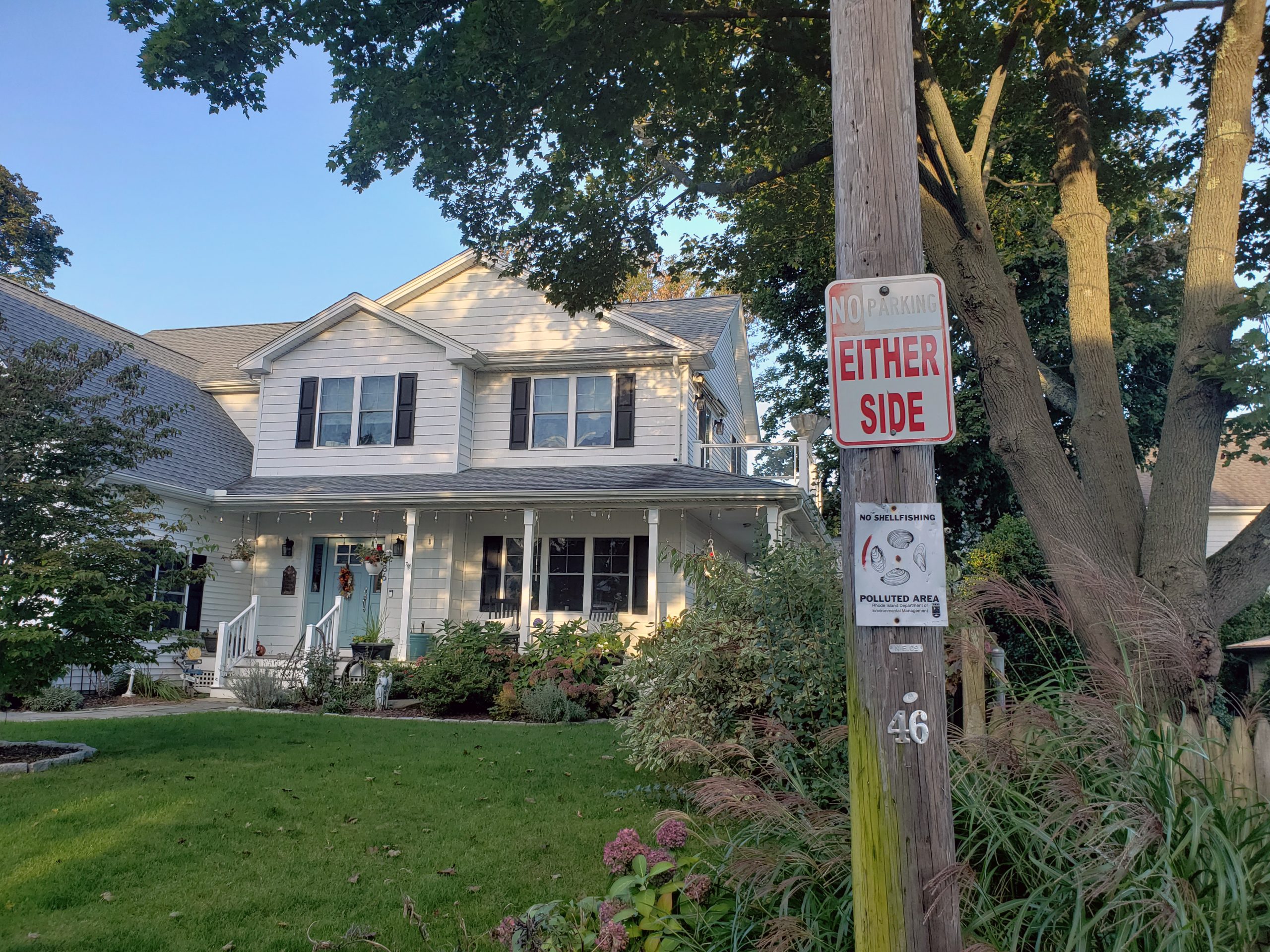By Erica Meier
Availability of parking near public rights-of-way to the shoreline is key to allowing meaningful access, but it’s also a source of conflict between coastal community residents and non-residents. Each municipality in Rhode Island handles parking regulations in its own way, and some cities and towns are more restrictive than others when it comes to allowing parking public parking on streets near the coast.

Rhode Islanders have a constitutional right to access the shore. In recent years, the state’s Coastal Resources Management Council (CRMC) has made progress in discovering and maintaining public rights-of-way. However, Rhode Islanders living further than walking distance from the coast have significantly more difficulty enjoying these natural resources.
Recently, conflicts around public parking in Rhode Island towns have risen as advocates for more public parking fight to ensure equal access to the coastline while town officials argue for the necessity of parking regulations in coastal areas. An article in the Boston Globe highlighted a debate surrounding parking regulations in Barrington. There, a study conducted by the town identified 20 roads wide enough to accommodate public parking, but officials are still restricting parking on seven of them due to other considerations such as “quality of life.”
The Rhode Island General Assembly has granted municipalities a substantial amount of power over local roads and parking regulations, where most of these rights-of-way are located. Nearly all communities implement parking regulations to improve traffic flow, ensure safety, and keep town resources accessible to residents. Some of these restrictions on parking, however, have made parking near the coastline illegal or impractical, especially for nonresidents.

Warwick conducting a traffic study to determine which “No Parking” signs should stay.
As a project for the CRMC, Rhode Island Sea Grant Law Fellow Matthew Lewicki, under the guidance of the Rhode Island Sea Grant Legal Program’s Catherine Schluter, former research attorney, and Julia Wyman, director, investigated local parking regulations in six Rhode Island towns — Narragansett, Tiverton, Barrington, Westerly, and Warwick — and wrote a fact sheet identifying influences on parking regulations in each town, the justification for regulations, and the potential impact that regulations may have on access to public rights-of-way.
He found that each town has different processes for regulating parking, differing priorities that seem to drive ‘no parking’ zones along the coast, and residents often in disagreement with different areas of regulations.
For example, unlike many municipalities, Tiverton’s municipal code clearly establishes the intent behind residential parking regulations, provides some guidance on street width required for parking, and outlines the process residents must follow to request resident-only parking on a street. Parking regulations in Westerly are generally business-oriented to ensure that parking is available near businesses through time-limited, on-street parking. In Warwick, improperly placed “no-parking” signs, some decades-old, have recently drawn criticism and the town is conducting a traffic study to determine which signs should stay.
He further found that in general, parking regulations are heavily influenced by local residents’ desire to reduce the perceived burden of nonresidents parking at or near the coastline, specifically at rights-of-way, including increased traffic, litter, and noise, among others. By contrast, many people in support of easing parking regulations believe that the coastline is practically inaccessible to those that are not within walking distance and that much of the reasoning for stricter parking regulations is merely a guise for denying people access to the coast. Such debates are currently playing out in towns like Barrington and Warwick, which are reevaluating their parking regulations.
This fact sheet is a product of the Marine Affairs Institute at Roger Williams University School of Law and the Rhode Island Sea Grant Legal Program. Matthew Lewicki, Rhode Island Sea Grant Law Fellow, authored this fact sheet under the guidance of Catherine Schluter, former Research Attorney, and Julia Wyman, Director. All errors and omissions are the responsibility of the Marine Affairs Institute. This study is provided only for informational and educational purposes and is not legal advice.
